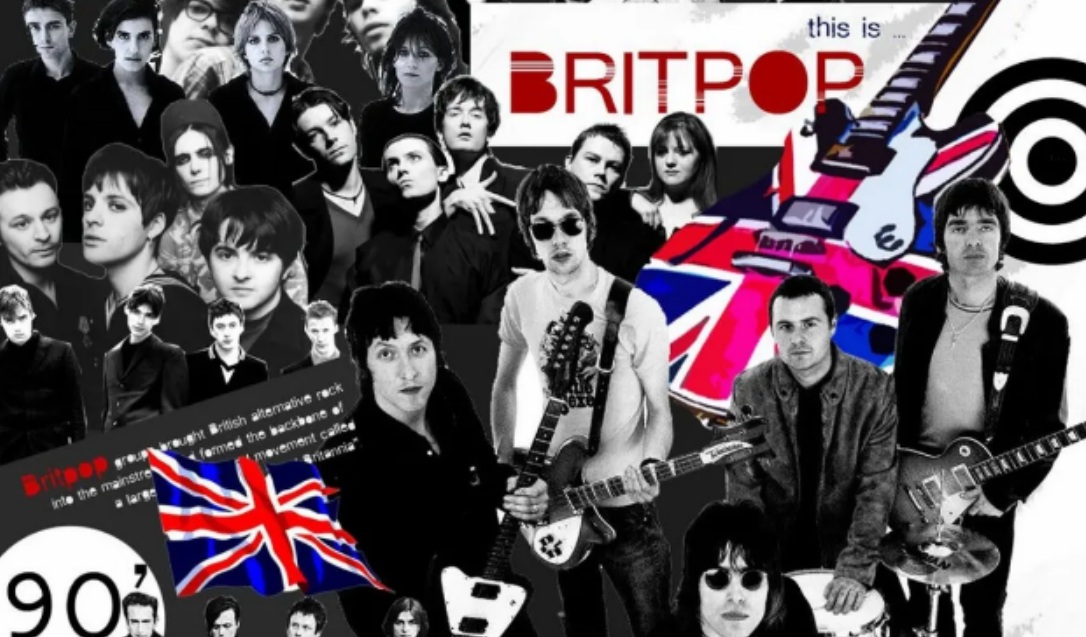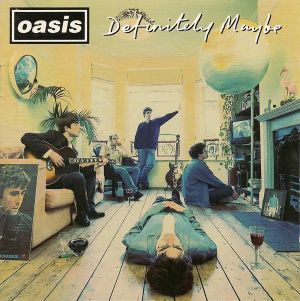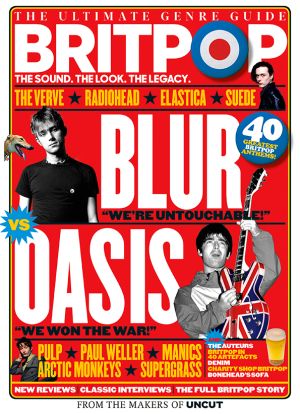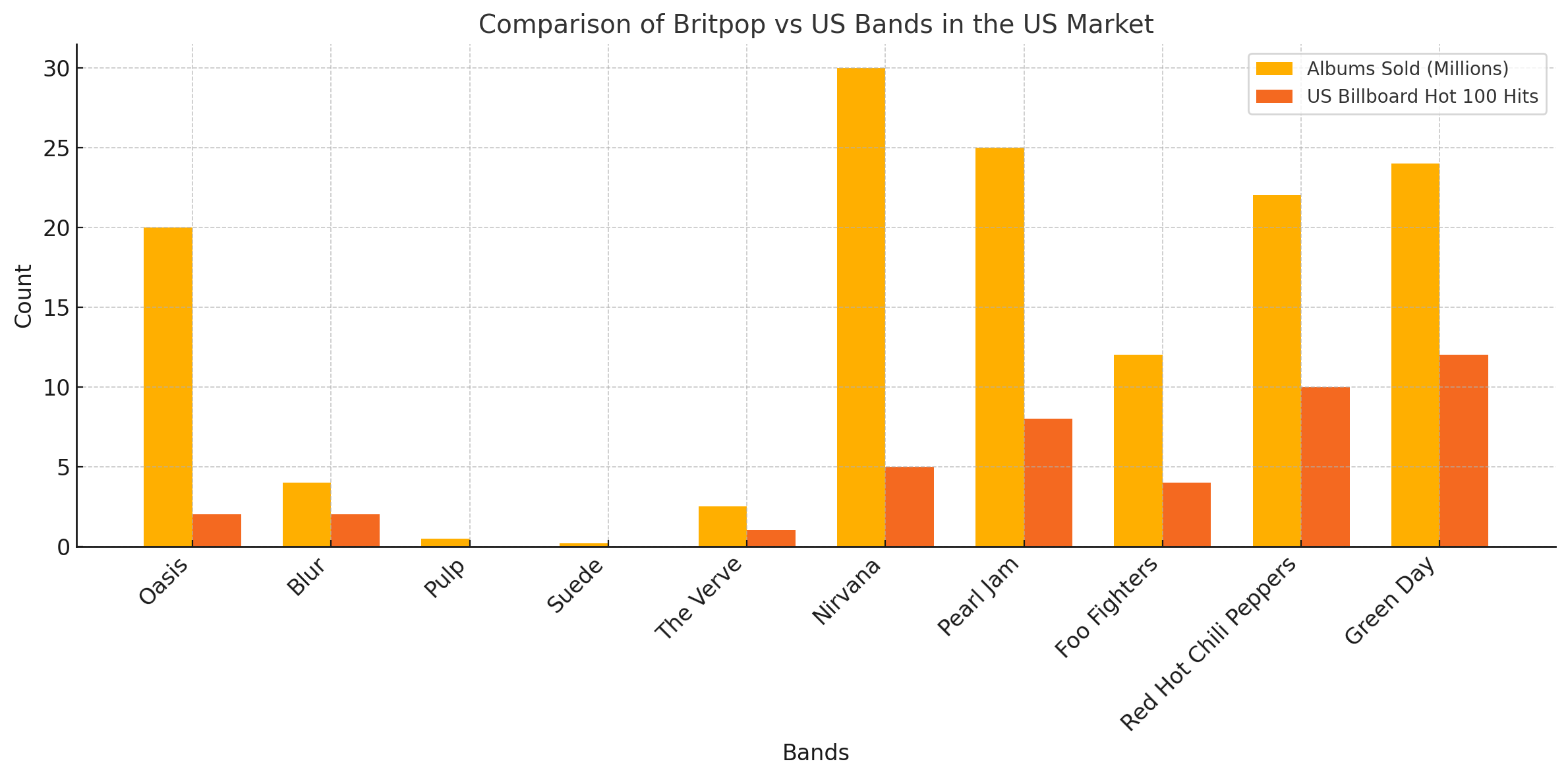The Story of Britpop from start to finish!

We all love a good time and that's ostensibly what Britpop was about!
It was many things - the last party for the British music industry before it went into decline along with the rest of the global music biz. It was certainly the last opportunity for guitar bands to stem their decline.
Britpop was the end of the analogue era, a last roll of the dice before digitalisation and the internet destroyed music in the 2000’s.
Britpop Timeline with Key Events
1980’s: What was before Britpop?
The roots of Britpop were bands playing subgenres of alternative rock and dance music. Britpop is closely associated with the Madchester scene in Manchester and is characterized by its blend of indie rock, psychedelia, funk, and dance beats.
1990:
- The band Blur forms in London, originally known as Seymour.
- Inspiral Carpets, The Stone Roses, and other "Baggy" bands gain popularity, laying groundwork for Britpop’s rise.
1991:
- Blur releases their debut album, Leisure, which includes the hit "She's So High" and "There's No Other Way."
- Suede is formed, spearheading a glam-rock-inspired alternative sound.
1992:
- Suede releases their debut single, The Drowners, to critical acclaim, marking one of the early sparks of Britpop.
- Blur's tour in America proves unsuccessful, leading to their decision to embrace a distinctly British sound for their next album.
1993:
- Suede’s debut self-titled album becomes a hit, debuting at No. 1 on the UK Albums Chart.
- Blur releases Modern Life is Rubbish, a pivotal album that rejects American grunge and redefines British music with hits like "For Tomorrow."
- The term "Britpop" gains traction in the media, championed by magazines like NME.
1994:

Oasis releases their debut album, Definitely Maybe, which becomes the fastest-selling debut album in UK history.
That bought my house that album did! Noel Gallagher
- Blur releases Parklife, their third album, featuring iconic tracks like "Girls & Boys" and "Parklife," defining Britpop's ethos.
- Pulp releases His 'n' Hers, cementing their position in the Britpop movement with hits like "Do You Remember the First Time?"
- The media begins hyping Britpop as a cultural force, comparing it to the "Second British Invasion." This is a misnomer as The British Invasion never ended.
1995:

Throughout music history rivalries and feuds have sold records which is why the cynical among us believe they are mostly manufactured. The Rolling Stones Versus the Beatles for example. The Britpop era gave us Blur-v-Oasis though Oasis managed to fight more amongst themselves at the drop of a hat!
-
The infamous Blur vs. Oasis rivalry peaks:
- Blur releases "Country House," and Oasis counters with "Roll With It." Both singles are released on the same day, with Blur topping the UK Singles Chart.
- Oasis releases (What’s the Story) Morning Glory?, featuring hits like "Wonderwall" and "Don’t Look Back in Anger," which catapult the band to global fame.
- Pulp releases Different Class, with the anthem "Common People," encapsulating the working-class ethos of Britpop.
- Glastonbury 1995 is dominated by Britpop bands, with Pulp stepping in as headliners after The Stone Roses cancel.
1996:
- Oasis plays two sold-out shows at Knebworth, attracting over 250,000 fans in what becomes one of the most iconic concerts in British music history.
- Blur’s self-titled album is released in the US, marking their attempt to crack the American market.
- Britpop reaches its zenith in the UK, with bands dominating charts and media.
1997:
- Radiohead releases OK Computer, signaling a shift away from Britpop's playful, nostalgic tone toward a darker, experimental sound.
- Blur releases Blur, featuring "Song 2," which breaks into the American market.
- Oasis releases Be Here Now, a highly anticipated album that receives mixed reviews, marking the beginning of the Britpop decline.
1998:
- Pulp releases This Is Hardcore, a darker, more introspective album, signaling the end of the optimistic Britpop era.
- Suede releases Head Music, leaning into electronic experimentation.
1999:
- Britpop fades as electronic music, post-Britpop acts like Coldplay, and American artists like Eminem and Britney Spears dominate charts.
- The era's last major headline act, Blur, shifts toward more experimental and lo-fi sounds with 13.
2000:
- Oasis faces internal conflicts, leading to lineup changes.
- Britpop’s cultural dominance is officially over, with many key bands either disbanding, shifting focus, or fading from the limelight.
Britpop Bands Chart Comparison
| # | Band | Top 10 Singles | No. 1 Singles | Top 10 Albums | No. 1 Albums | Total Weeks on Chart |
|---|---|---|---|---|---|---|
| 1 | Oasis | 23 | 8 | 8 | 7 | 400 |
| 2 | Blur | 12 | 2 | 7 | 4 | 320 |
| 3 | Pulp | 10 | 0 | 6 | 1 | 250 |
| 4 | Suede | 10 | 0 | 5 | 1 | 200 |
| 5 | Supergrass | 9 | 0 | 4 | 1 | 180 |
| 6 | Elastica | 4 | 0 | 2 | 0 | 75 |
| 7 | The Verve | 9 | 2 | 3 | 1 | 220 |
Britpop Bands US Chart Success

| # | Band | Albums Sold in US (Millions) | US Billboard Hot 100 Hits | US Tour Success (Scale of 1-10) | % of Total Albums Sold |
|---|---|---|---|---|---|
| 1 | Oasis | 20.0 | 2 | 9 | 14.3% |
| 2 | Blur | 4.0 | 2 | 7 | 2.9% |
| 3 | Pulp | 0.5 | 0 | 3 | 0.4% |
| 4 | Suede | 0.2 | 0 | 2 | 0.1% |
| 5 | The Verve | 2.5 | 1 | 8 | 1.8% |
| 6 | Nirvana | 30.0 | 5 | 10 | 21.4% |
| 7 | Pearl Jam | 25.0 | 8 | 9 | 17.8% |
| 8 | Foo Fighters | 12.0 | 4 | 9 | 8.6% |
| 9 | Red Hot Chili Peppers | 22.0 | 10 | 10 | 15.7% |
| 10 | Green Day | 24.0 | 12 | 9 | 17.1% |
NEXT >> britpop part two key inflencers